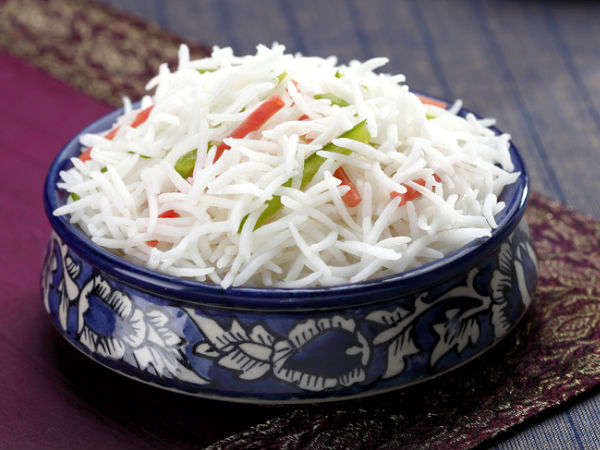Basmati type of rice has been an important part of Indian and Pakistani cuisine since centuries. Today, basmati is growing very popular in other markets around the world, including the West. The evidence of this popularity can be judged by the fast-rising numbers of basmati exporters from the Indian sub-continent.

The word Basmati denotes aromatic rice. This unique aroma is due to its content of a chemical called as 2-acetyl-1-pyrroline which is present 12 times more than in other rice types.
Thus, Basmati rice is remarkable for its distinct aroma and flavour. These are responsible for its global popularity but there are other reasons too- especially because of its nutritional value.
Basic Nutritional Facts:
Basmati islong grain rice which comes in white and brown varieties. Relative to other long grain rice, Basmati has lower calories. A serving of ¼ cup of rice contains 150 calories, 33 gm of carbs, 1.5 gm of fat, 4 gm of proteins and 2 gm of fibre.
Other Nutritional Benefits:
- Good source of energy: Basmati is preferred over other types of rice for those who are seeking a high-energy food in their regular diet. A cup of 200gm of cooked basmati contains more than 200 calories and is a good source of instant energy.
- Carbohydrates: Certain types of basmati like 11-21 rice and royal rice are rich sources of carbs. For example, 200 gmcontain 45 gm of carbs.
- Proteins: Basmati does not have much protein content-only around 4 gm per cup. But the rice protein it contains is of much value. Protein content of basmati consists of 8 essential amino acids. Basmati contains 10% of DV (daily value) of protein per cup of rice.
- Low in fat and Gluten: One bowl serving of basmati contains less than1 gm of fat. This rice is also notable for its lacking cholesterol content. These make it idealfor a regular diet, especially for those trying to deal with weight problems. Also, 11-21 basmati and other types are free of gluten. This makes it perfect for those persons who suffer from gluten allergy and cannot tolerate gluten in their diet.
- Rich source of vitamins and minerals: Basmati is rich in thiamine and niacin, two types of B Vitamins essential for metabolism. One serving of this rice also contains 6% of DV of iron. 15% of DV of Niacin is contained in a bowl of Basmati which helps in digestion and circulation. It also contains Vitamin B6 which helps in metabolism and prevents cardiac problems. Vitamin B is also helpful to produce red blood cells in the body and ensureshealth of the nervous system. Other vitamins in this rice include anti-oxidant vitamin E and Vitamin K for clotting of blood. Lack of magnesium causes muscle cramps and high blood pressure. A cup of Basmati contains 21% of DV of magnesium. Other mineral content includes calcium, potassium, zinc, and copper.
- Fibre: Brown Basmati is rich in fibre that aids digestion and eases bowel movement.
Keeping in mind the high nutritional benefits of Basmati, it is fast becoming the preferred type of rice in markets all around the world. Rice exporters in North India are benefitting from this rising demand for value basmati rice. Its aroma, flavour and nutritional value make it a high export item.
